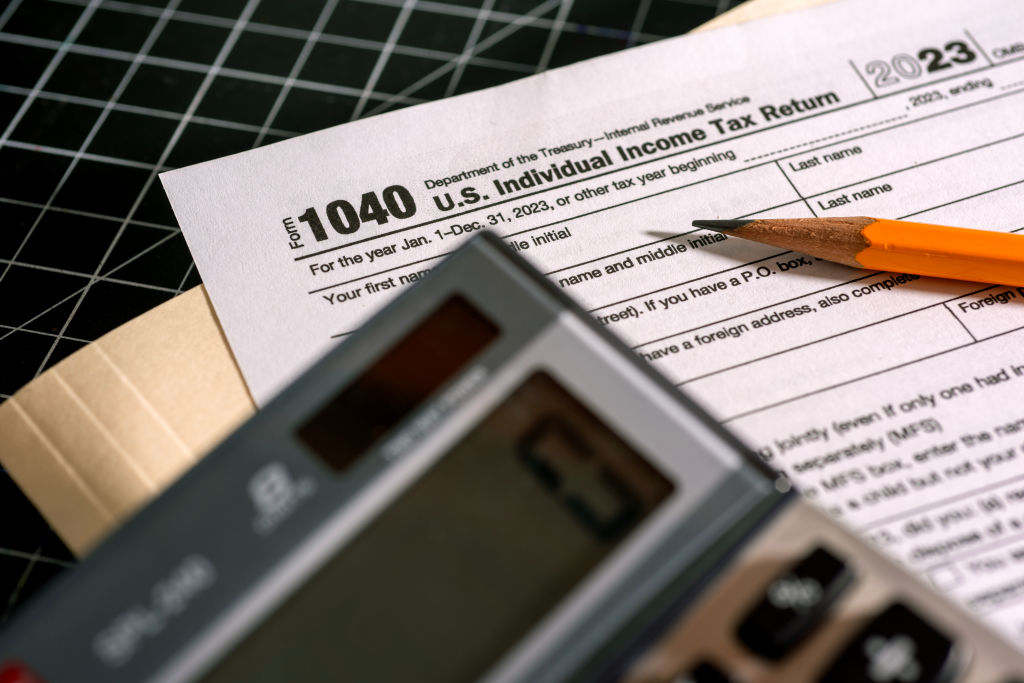As of April 2024, the U.S. had a total federal debt of more than $34 trillion—or $102,897 per person in America. One viral post, which has spread on sites including Threads, Instagram, and X (formerly Twitter), claims the debt is so high because the U.S. does not tax its billionaires sufficiently. “America isn’t in $30T debt because the poor rely too much on welfare and pay too little tax - but because billionaires pay too little tax and rely on too much corporate welfare,” the post says.
This statement is misleading. Even if billionaires in the U.S. were taxed at a 100 percent rate, the proceeds would have only a small impact on the federal debt.
How much billionaire wealth is there in the U.S.?
It is difficult—if not impossible—to identify a precise number of billionaires in the U.S. or their precise cumulative wealth. Because high net-worth individuals generally hold most of their wealth in assets like public and private stock, alternative investments, and real estate, their wealth is highly dependent on unrealized capital gains, meaning their estimated net worths can fluctuate widely based on how those assets are valued at any given time. However, according to research by Inequality, a website for news about wealth inequality, and the Institute for Policy Studies, approximately 740 billionaires currently call the United States home, and they hold about $5.5 trillion in total wealth.
Would taxing billionaires more eliminate the national debt?
While the relative wealth of billionaires is high compared to that of average Americans, their absolute slice of the national income pie is not nearly large enough to negate the country’s federal debt and deficit. As of December 31, 2023, total household net worth in the United States stood at more than $147 trillion, meaning billionaires represent about 3.7 percent of total U.S. household wealth. Even if the total wealth of every one of America’s approximately 740 billionaires were applied toward the nation’s $34.6 trillion federal debt, the U.S. would still hold more than $29 trillion in debt—a decrease of only 16 percent.
Even so, a 100 percent tax rate on either billionaire wealth or income is unrealistic and does not account for the negative economic impacts that would result. In a September 2023 report, Manhattan Institute economist Brian Reidl found that even the most aggressive “tax the rich” policies—meaning those that raise taxes on individuals and corporations to revenue maximizing levels—could raise, at most, only 2 percent of total U.S. GDP, or about $560 billion per year.
What about corporate welfare?
Cuts to corporate welfare—subsidies and tax breaks given to corporations—would also not have a significant impact on the federal debt. In 2012, the CATO Institute estimated that the U.S. government spends approximately $100 billion annually on corporate welfare. Adjusted for inflation, that would equal about $136 billion per year today. Compare that to the federal budget deficit in fiscal year 2023, which was $1.7 trillion: Completely cutting corporate welfare would have decreased the fiscal year 2023 budget deficit by only 8 percent.
If you have a claim you would like to see us fact check, please send us an email at factcheck@thedispatch.com. If you would like to suggest a correction to this piece or any other Dispatch article, please email corrections@thedispatch.com.







Please note that we at The Dispatch hold ourselves, our work, and our commenters to a higher standard than other places on the internet. We welcome comments that foster genuine debate or discussion—including comments critical of us or our work—but responses that include ad hominem attacks on fellow Dispatch members or are intended to stoke fear and anger may be moderated.
With your membership, you only have the ability to comment on The Morning Dispatch articles. Consider upgrading to join the conversation everywhere.